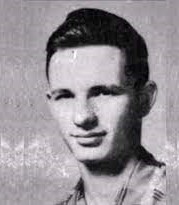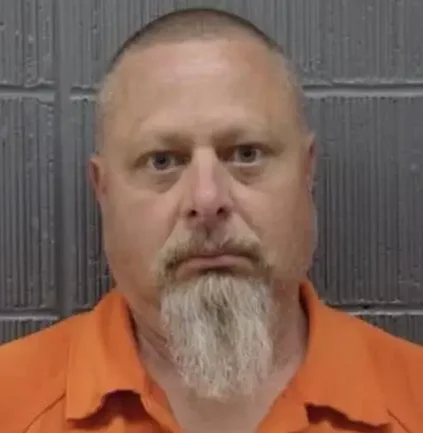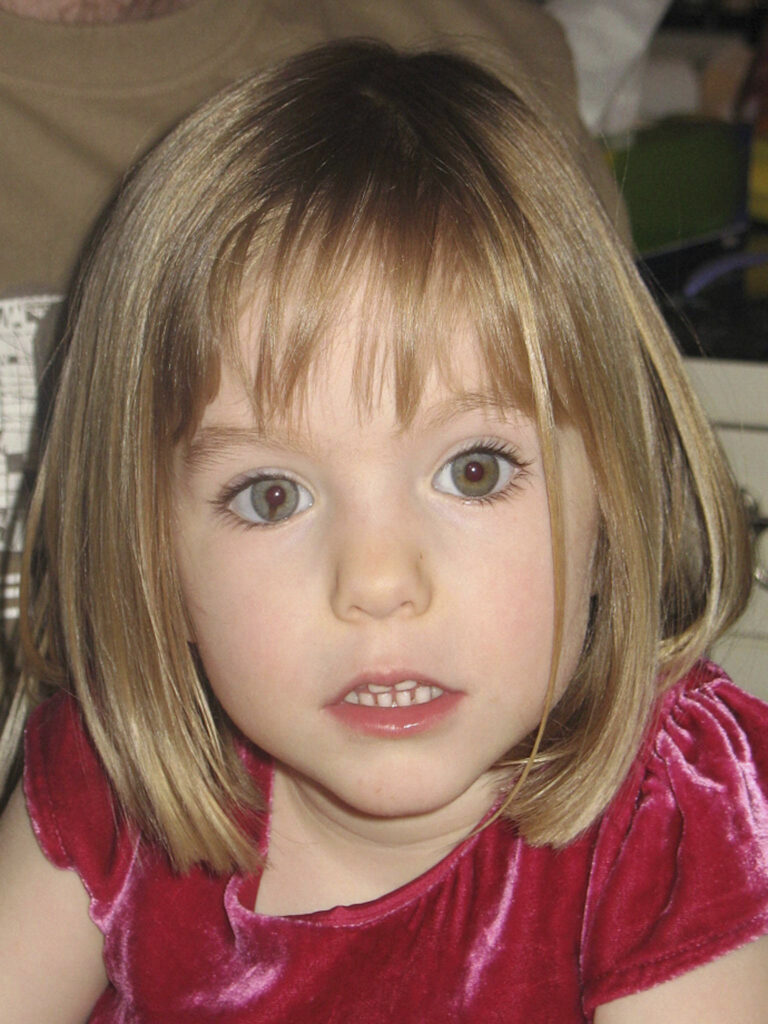
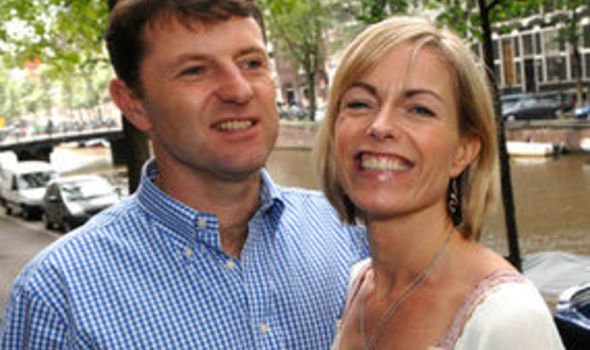
Madeleine was on holiday with her parents Kate and Gerry McCann, her two-year-old twin siblings, and seven friends and their children. Madeleine’s parents are both physicians. Kate is a general practitioner. She had moved briefly into obstetrics and gynecology, then anesthetics. Gerry qualified in medicine and in 2002 obtained his MD, from Glasgow. Since 2005, he has been a consultant cardiologist at Glenfield Hospital, Leicester. Kate hasn’t practiced medicine since the disappearance.
The McCanns arrived on 28 April 2007 for their seven-night spring break in Praia da Luz, a village in Portugal.
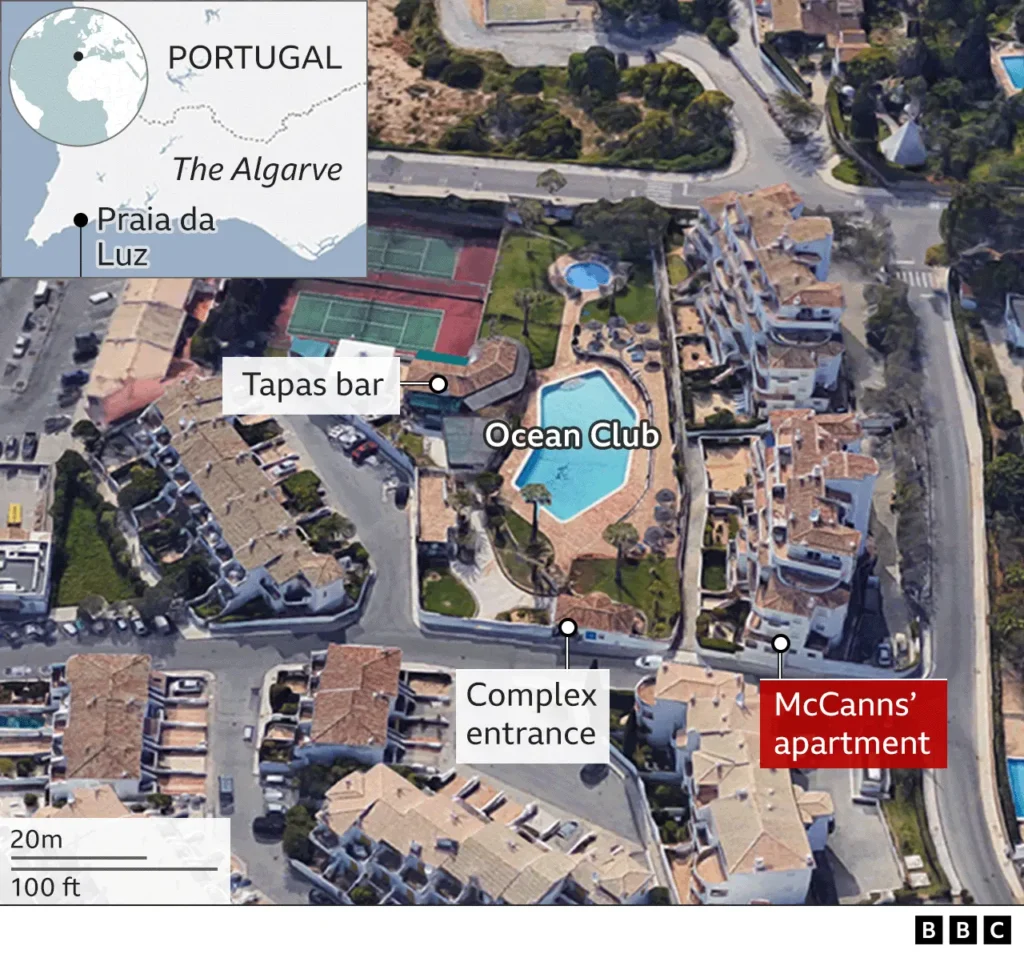
According to the FBI, 74% of children at her age are in danger to be murdered within the first 3 hours. Two officers from the gendarmerie, the Guarda Nacional Republicana (GNR), arrived at the resort at 23:10 from Lagos, 5 miles (8 km) away. At midnight, after briefly searching, they alerted the criminal police, the Polícia Judiciária (PJ), in nearby Portimão. Kate recounted that the PJ arrived just after 01:00. According to the PJ, they arrived within 10 minutes of being alerted. At 02:00 two patrol dogs were brought to the resort, and at 08:00 four search and rescue dogs. Police officers had their leave cancelled and started searching waterways, wells, caves, sewers and ruins around Praia da Luz. Inspector Gonçalo Amaral, head of the PJ in Portimão, became the inquiry’s coordinator.
Two specialist English sniffer dogs were summoned to Praia da Luz in August to try and help work out what had happened to Madeleine McCann. The springer spaniels, named Eddie and Keela, and their handler Martin Grime had been handpicked by the UK police force’s national search expert, Mark Harrison. During their intensive search the two dogs made 13 alerts in several key locations of interest in the case.
According to a Portuguese police report, Eddie and Keela alerted a total of 13 times, including inside the McCann holiday apartment; a rental car they had hired three weeks after Maddie disappeared; and some personal items belonging to the family. On August 6, six days after investigating apartment 5A, both dogs alerted on a silver Renault Scenic rental car the McCann’s had hired 25 days after Madeleine vanished.
A Portuguese police report also stated the dogs alerted on several items of Mrs McCann’s clothing, and Madeleine’s favourite soft toy, Cuddle Cat.
The work of cadaver and human blood dogs cannot be submitted as evidence in court. They can be a useful investigative tool for police, who strive to find corroborating evidence such as DNA, a body or a confession.
https://youtu.be/uGR2rHxy1rc?si=zGYL3JcnNBDJ7cCc
One month after the dogs had concluded their search, the McCanns were declared arguidos (formal suspects), by Portugal’s Policia Judiciaria.
It was widely acknowledged that mistakes were made during the so-called “golden hours” soon after the disappearance. Neither border nor marine police were given descriptions of Madeleine for many hours, and officers did not make house-to-house searches. According to Kate, roadblocks were first put in place at 10:00 the next morning. Police did not request motorway surveillance pictures of vehicles leaving Praia da Luz the night of the disappearance, or of the road between Lagos and Vila Real de Santo António on the Spanish border. Euroscut, the company that monitors the road, said they were not approached for information. It took Interpol five days to issue a global missing-person alert. Not everyone in the resort at the time was interviewed; holidaymakers later contacted the British police to say no one had spoken to them.
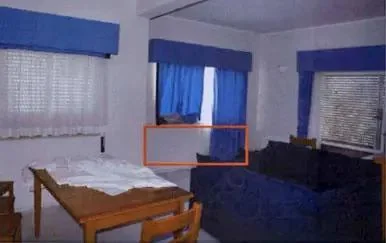
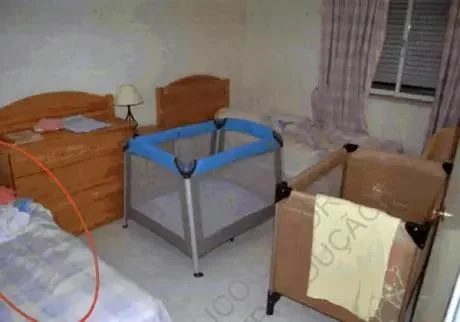
The crime scene was not secured. Portuguese police took samples from Madeleine’s bedroom, which were sent to three forensic labs. It was reported on 1 June 2007 that DNA from one “stranger” had been found, but around 20 people had entered apartment 5A before it was closed off, according to Chief Inspector Olegário de Sousa of the PJ. According to Kate, an officer placed tape across the doorway of the children’s bedroom, but left at 03:00 without securing the apartment. The PJ case file, released in 2008, showed that 5A lay empty for a month after the disappearance, then was let out to tourists before being sealed off in August 2007 for more forensic tests. A similar situation arose outside the apartment when a crowd gathered by the front door of 5A, including next to the children’s bedroom window—through which an abductor may have entered or left – trampling on evidence. An officer dusted the bedroom window’s exterior shutter for fingerprints without wearing gloves or other protective clothing.
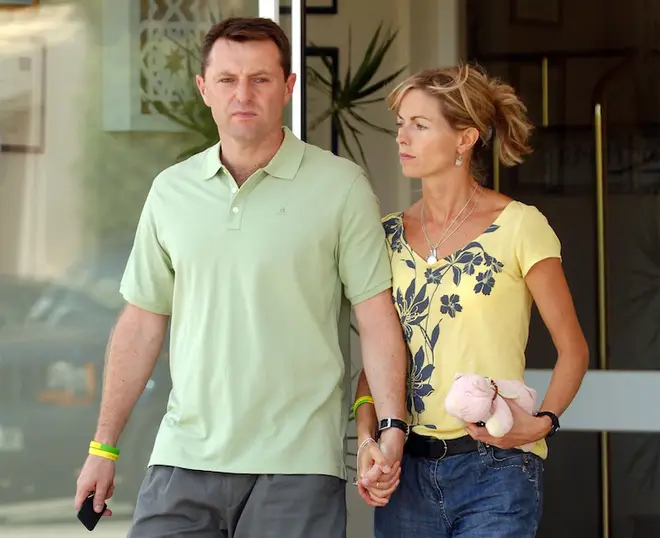
Among the inconsistencies was whether the McCanns had entered the apartment by the front or back door when checking on the children. According to the case file, Gerry stated during his first interview, on 4 May 2007, that the couple had entered their apartment through the locked front door for his 21:05 and her 22:00 checks, and in a second interview, on 10 May, that he had entered through the unlocked patio doors at the back. The patio doors could be unlocked only from inside, so the parents had left them unlocked to let themselves in. There was also an inconsistency about whether the front door had been locked. Gerry told The Sunday Times in December 2007 that they had used the front door earlier in the week, but it was next to the children’s bedroom, so they had started using the patio doors instead. The PJ also questioned why, when Kate discovered Madeleine was missing, she had run to the tapas restaurant leaving the twins alone in the apartment, when she could have used her mobile phone or shouted to the group from apartment’s rear balcony. Another issue was whether the exterior shutter over Madeleine’s bedroom window could be opened from outside. According to journalist Danny Collins, the shutter was made of non-ferrous metal slats on a roller blind that was housed in a box at the top of the inside window, controlled by pulling on a strap. Once rolled down, the slats locked in place outside the window and could be raised only by using the strap on the inside. Kate said the shutter and window were closed when Madeleine was put to bed, but open when she discovered Madeleine was missing. Gerry told the PJ that, when he was first alerted to the disappearance, he had lowered the shutter, then had gone outside and discovered that it could be raised only from the outside. Against this, Portuguese police said the shutter could not be raised from the outside without being forced, but there was no sign of forced entry; they also said forcing the shutter open would have caused a lot of noise. The apparent discrepancies contributed to the view of the PJ that there had been no abduction. Kate’s shout of “they’ve taken her” was viewed with suspicion, as though she had been trying to lend credence to a false abduction story. They concluded that Madeleine had died in apartment 5A as a result of an accident – perhaps after being sedated to help her stay asleep – and that her parents had hidden her body for a month, before retrieving her and driving her to an unknown place in a car they had hired over three weeks after the disappearance.
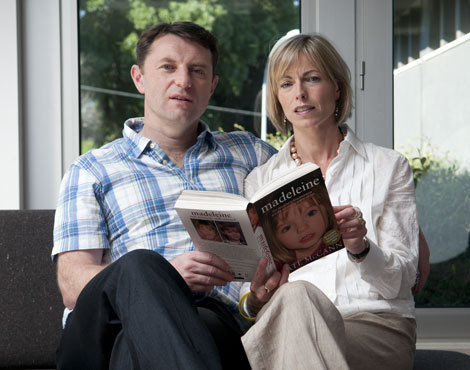
Peter Hyatt, Portland, Maine, USA is an expert on statement analysis and he actually gives lectures and teaches people how to analyze witness statements. Peter Hyatt was worked on cases as a state investigator for allegations of child abuse and later on allegations of adult abuse. He went to teaching statement analysis. He did investigations, especially in private companies. He became involved with law enforcement, in training law enforcement, assisting law enforcement. He works full time as an analyst and an instructor teaching law enforcement, teaching journalists, lawyers, therapists and all different professionals who study the techniques used to discern deception, but also content analysis.
Peter Hyatt: “…When someone sends anonymous threatening letter, statement analysis is often able to identify who wrote this letter and what the person that wrote the letter is like. This allows them to know is this threat real… In many detecting deception schools, they run around seventy percent success. For us that’s would be an abysmal result. These investigators are running at or near 100% success rate.”
Interviewer: “At 9 00 p.m. Gerry checked on Madeleine and the twins. Gerry: “I actually stuck my head around the door and, and I just lingered for a few seconds and thought how beautiful she was. Um… and that was the last time I saw her.”
Peter Hyatt: “This is very concerning. This is a statement that bothers me a great deal. First of all, he begins with the pronoun ‘I’ which means psychologically, he’s putting himself there. This is good. We want him to be there. We want to have reliable information. But the next word is ‘actually’. The word actually means he’s comparing what he’s claiming to do with something. Why would that be necessary at this point? ‘Then I’d actually stuck my head around the door and I, I just lingered for a few seconds and thought how beautiful she was. Um… and that was the last time I saw her’. At this point his child is missing, not dead, according to their narrative. Even though he’s referencing a specific night, is Madeleine no longer beautiful? And I what I ask the viewers is to consider that when you give a detail of a past tense event, the details should be in the past tense appropriately. When you speak about character or ongoing characteristics of a missing child, it should be present tense. And ‘I thought how beautiful she is and that’s the last time I saw her’. That would be more acceptable. This is a past tense reference to Madeleine herself, not specifically bound up to a detail. But actually, was she only beautiful that night? That’s what I mean by an attribute, so when someone uses an attribute of a missing child the past tense, It’s not a good signal. It’s not a good signal at all. Now, he also stuttered with the pronoun ‘I’, so we look for is that, does he normally stutter? and he doesn’t. He’s not a stutterer. The pronoun ‘I’ is something that we in the English language use millions of times. We are as good at using the pronoun ‘I’, as we could be good in anything in this life. When someone stutters on the pronoun ‘I’, there is an increase in tension and anxiety. And this stutter bothers me here. And it’s important. He’s talking about his daughter in the context ‘she’s still missing’. So while you know the several things are wrong, he gives a narrative or an emotion. He references her beauty which should be ongoing and it’s not. And he stutters on the pronoun ‘I’. And I still wait to hear concern for what Madeline is going through, while this interview is being conducted. And it’s going to be a bigger point as we move forward. Excuse me. The last time someone sees a missing child is always going to be important. This may sound a bit strange, but I believe him. I believe that the last time he saw her, he did linger and he did think about how beautiful she was. I think this is where she was disposed of.”
Interviewer: “Did you kill your daughter?”
Gerry McCann: “No. That’s an emphatic no. I mean the ludicrous thing is erm what I suppose, what’s being purported from Portugal is that Madeleine died in the apartment by an accident, and we hid her body. Well when did she have the accident and died, because, the only time she was left unattended was when we were at dinner so… if she died then, how could we have disposed or hidden her body. You know, when there was an immediate (inaudible, but sounded like he was about to say ‘search’). Just nonsense. So, and if she died when we were in the apartment or fell and di…, why would we, why would we cover that up?”
Peter Hyatt: “And this is what we call the embedded confession. This is where a guilty party will put together in their own language what happened and we need to listen and believe them. We also have the principle of them asking questions. This is very important. They’re asking questions to find out how their answers will be responded to. Will it be ridiculed? Would it be acceptance? Will it sound sane? Would help get them off the hook? Listen very carefully to what they say. it’s a yes or no question – Did you kill your daughter? ‘No’ is a good answer and what I teach investigators to do is when someone is asked a yes or no question is to count on their fingers the number of words following the word ‘No’. It goes beyond your ten fingers. When it goes that long, very simply speaking. There is a need to persuade so the ‘No’ is not going to stand on itself. If he said ‘No, I didn’t kill my daughter and I’m telling you the truth’. This would be something very strong. Then we have to ask about her and we’d also have to ask did something cause your daughter’s death, that sort of thing. But here… ‘No. That’s an emphatic no’. The first thing we know about his denial is that his denial from his perspective needs some help. It’s weak. ‘That’s an emphatic no’. So the first thing is ‘No’. Okay. ‘An emphatic no’. My ‘No’ needs emphasis. Why does it need to be emphasis? There’s one. ‘I mean the ludicrous thing is erm what I suppose, what’s been purported from Portugal is that Madeleine died in the apartment by accident and we hid her body’. Okay. What he tells us here is Madeleine died in the apartment. His words. By an accident. Which would support the pronoun ‘we’ that we heard between mother and child. ‘And we hid her body’. I believe him. The reason I say this is an embedded confession is because he is not entering any other language, he’s not quoting anyone. For instance, if I said well you said that I killed her. That’s not an embedded confession, because I’m actually quoting you. Here he’s not, not only not quoting anyone, he’s only saying what’s been purported. Not even an accusation. And we need to be listening to him. This now tells me as an analyst – Madeleine died in the apartment. So I know from their language thus far that Madeleine is not alive. They are in need of an alibi. The death was not intended and the location of the death is in the apartment. And again, by accident. And then I know something else now, I know that we hid her, Gerry and his wife. I’m sorry, the two McCann’s together. They worked together to hide her body. Then he goes into questions and this is where guilty parties are looking to see responses. They want, they’re disguised the rhetorical questions but they want to see what people respond to them as. This takes place even in the interview process. ‘Well, when did she had the accident and died?’. Okay. What they want to know is do people know the exact time of death. ‘Because the only time she was left unattended’, ‘She was left unattended is not the only time we left her’. He’s now removing himself from that. Left unattended is passive. ‘When we’, which shows unity between him and his wife ‘were at dinner’. ‘So if she died then’ this is we called an allowance. The father of a missing child is allowing for a scenario that denial will not allow. There’s no natural denial. He’s saying ‘if she died then’, not even if she was dead which is itself a red flag, but now about a specific time ‘how could we have disposed, hidden her body’. The word disposed and then hidden. The change there actually shows respect for Madeleine. It’s a softer terminology. Not dump the body and he even changed ‘the dispose’. It’s self-correction from disposed to hidden. He now tells us that they didn’t dispose the body, they actually hid it. This is why and this confirms the priority. We want there to be light. We want there to be searching. By the way, we also want then find Madeleine but its last on my list of priorities. So I now know that Madeleine is dead. Madeline died in the apartment. And listen to his questions ‘When did we do this?’ ‘How did we do this?’ You know, when there’s an immediate inaudible ‘search’. It’s just nonsense’. Self-censoring again. ‘And if she died when we were in the apartment or fell and died why would we, why would we cover that up?’ Okay. That’s the most important question he asked. So he now introduces something else that it may have happened. Madeleine fell. I am concerned and remain concerned that Madeleine may have been drugged in any way shape or form, whether it be nighttime cough syrup or something more. So that these people could go and have their dinner in their party and get their break and all that. That Madeleine awoke and fell and got injured, and the injury was beyond.”
Richard D Hall: “Can I just interject with a question, Peter?”
Peter Hyatt: “Sure.”
Richard D Hall: “When he’s saying he’s alluding to the fact that he doesn’t think they would have had time on that particular evening to deal with the body, could that suggest that there’s been pre-planning and the meal was orchestrated to allow for a window for their phantom abductor and in he’s confident that he can show the audience that there’s not enough time for them to have done that? So in other words, it’s possibly having done a previous time?”
Peter Hyatt: “Yes, it is possible and the focus on time which he doubles up on, opens that door up now for us. We have to consider it. Intention, it hasn’t changed. In other words, that this death was not intended, is not changed by this, but the fact that they do or he does in his language, focus so much on time. We must now be open to the possibility that he has a confidence about this timeframe, because it happened at a different time frame. So the answer is yes. What he’s doing is he’s affirming every other point of analysis, so when I said earlier that we look at little point here, a little point there. He’s now summed it up for us. The reason why this father does not show any concern about what Madeleine is going through is because Madeline is beyond experiencing anything that he would need to be concerned about. They hid her body. That’s what they did according to his language, but I don’t think we should dismiss quickly that he introduced falling. ‘She was very tired’, Kate said. They had left her for their own and so he asked the question ‘Why would we cover this up?’ and the answer is quite simple. We have professional people who have two other children. Unintentional death, you’re going to lose custody of the children.”
Richard D Hall: “Another motive might be if had been signs of abuse?”
Peter Hyatt: “Yes.”
Richard D Hall: “That would come up…”
Peter Hyatt: “…an inquiry, sure. As medical professional in any way, they are very likely to have knowledge of child abuse, because it’s just part of that profession where they deal with that. Now we have some indications there that would need much further exploration for possible sexual abuse and there is a risk of the consequences for an unintended death, that’s number one, risk of losing the other children. Number two and then, as you point out, when child protective services send in a professional to investigate. Every case is explored for sexual abuse, whether there’s allegations or not. All indicators of all possible abuses are explored for. Neglect, physical abuse, emotional abuse, sexual abuse is going to be explored for in every case. Because we have some linguistic indicators which could be them as parents, it could be them as abusers. It could be him as an abuser, could be her failure to protect. We have to explore for it. The consequences could go on more than just losing custody of the twins. It could be losing loss of freedom. When a guilty person asked questions they’re floating out alibis, they’re looking to see what sounds plausible. And in his question he says ‘Well when did she have the accident?’ Not ‘an accident’, ‘the accident’ and died. ‘The only time she was left unattended was when we were at dinner’, so which is establishing his alibi. ‘If she died then, how could we have disposed or hidden her body’. That was interesting when some people ask questions like that, they don’t always get the answers they want to hear. We had here in the United States a baseball player who was accused of using performance-enhancing drugs, named Roger Clemens and under oath he said ‘If I have all these performance-enhancing drugs, it would mean that someone supplied them. Who is this who supplied them? I wish you would come forward’. So he asked who supplied them and then he made a wish. The man who supplied him with the promo testing drugs came forward and fulfilled his wish. He testified against him. So as by asking a question they’re trying to portray it as if it’s not plausible while they’re giving out information and admitting what happened. This is an embedded confession, a statement analysis. This is not the quote of someone else accusing them. ‘This is what was purported to come out from Portugal’, what he’s saying to you is Portugal police no. They may make various statements, but the investigators on the ground if we were to talk to them. The ones that first responded they would tell you exactly what they feel about this case and I think we’ll be right here. Then it’s a cover-up.”
Kate McCann: “It’s ludicrous. We’ve obviously hidden it somewhere incredibly well. Well, nobody’s found her.”
Peter Hyatt: “I believe what she’s telling me. I believe that, the first, the word obvious means to accept without question, and I am following it. That we’ve obviously, it’s obvious to in this concern of hers that people recognize they’ve hidden her somewhere incredibly well where nobody’s found her. Now, consider this. This is supposed to be from a mother of a missing child who was spending a lot of time defending herself, trying to ridicule the accusations, instead of pleading for her safe return and talking about what she’s going through. Again there is no concern for what Madeleine is going through by biological parents, close relatives, the closest relatives.”
Kate McCann: “We hid her so well, that we then decided we’d move her in the car which we hired weeks later and, you know, it’s just ridiculous.”
Peter Hyatt: “So now we have a change of language from ludicrous to ridiculous. We have a car entering her language and the timing is not lost on us either. She now says ‘weeks later’, so if someone was concerned that the death took place at a different time, she’s now saying you’ve got a good idea to be concerned about that. She’s playing with the time so to narrow down the timeframe to what they want us to think it is, would not be a wise investigatory move. We’d have to be open to other time here.”
Richard D Hall: “Does that include the death occurring before their stated time, the time they say Madeleine was abducted?”
Peter Hyatt: “It has to go beyond the time that they state. It has to. Because their words are guarding, at least from my perspective, as a statement analyst, they’re not locking in a time frame. By choosing three weeks is to deliberately blur. It’s kind of a joke, but it’s a statistical point is that when someone is going to choose a number and they need to lie about it, they often will cling to number three. Two sounds too small, four sounds too big and just one of those statistical patterns…”
Richard D Hall: “They did hire a car after they’d reported missing, a few weeks after…” So that’s what she’s referring to there and there was evidence found in the car… of kind of a dog evidence, I believe.”
Peter Hyatt: “The point being is that as she even goes to this area. She’s changing the time frame for us right. So even if three is accurate, it’s still fascinating that she is now moving the time away from what they originally said. So it’s sensitive to her.”
Interviewer: “When you come back to Portugal, do you feel closer to Madeleine?”
Kate McCann: “Although I don’t know where Madeleine is that is the last place that, you know, I saw her, held her and I guess there’s a part of me that still feels connected to her there so.”
Peter Hyatt: “This was an interesting question and I thought for an interview, that I did not think very highly of, this was a fascinating question that grabbed my attention. And I think the interviewer might be probing for what we actually get here, is her answer is important ‘Although I don’t know where Madeleine is – no one accused you of that. So before she even gets to her emotion, she has a need to deny that she knows where Madeleine is. I know that tells me? That she’s actually affirming that we hit her incredibly well. These two smart people who were in panic mode for themselves hid her incredibly well. So ‘Although I don’t know where Madeleine is,’ we call that the negation. She wants us to know what she doesn’t know. Very sensitive. And then she uses the phrase ‘you know’, and what we do with any type of habit of speech is we look where it comes up and where it doesn’t come up. And it shows an acute awareness of the interviewer. So we notice what topics will provoke that, what topics do not provoke it. And about the location of Madeleine, it provoked it. Then she says and I think this is important ‘I saw her, held her.’ Now, in order to hold her you have to see her. Seeing her is unnecessary. People speak that way about dead people, dead family members. Because in order to hold her, you have to see her, unless you held the dead body. I think that when Madeline’s lifeless body was carried, Kate held her. I think she’s telling the truth.”
Kate McCann: “I think kids can be written off, you know, and missing kids can be written off too easily. You cannot do that. You cannot give up on a child.”
Peter Hyatt: “This is the mother of a missing child, utterly avoiding the call to find her child, utterly avoiding the call to attention of what Madeline is suffering through. Instead, this is extreme distancing. ‘I don’t want Madeleine written off, I want her found. No, kids, general, can be written off. ‘you know’, again that awareness of the interviewer. ‘Missing kids’, no my Madeleine, ‘missing kids can be written off’. This is someone who has well moved beyond in the grieving stage. She is well processed the information – Madeleine was not coming home and she’s at peace with it now. This is a distancing language of – kids, kids, child. The use of the word child there again is something that, you know, we don’t say ‘kid abuser’, ‘kid molester’, we say child abuse, child molester. This use of the word child, although it’s not conclusion by itself, with the other indicators causes me to be concerned that Madeleine was a victim of child abuse inside that home, I don’t know for certain. There are certain things that I do and can say that with a strong conclusion. That’s an element that must be explored.”
Richard D Hall: “Just as an aside, Peter, are you aware of the, what we call the Gaspar statements. This was statements that a family or a couple made against the McCanns not long after it happened? Are you aware of that?”
Peter Hyatt: “No.”
Richard D Hall: “Okay. Perhaps I can show you that at some point, but they had been on holiday with the McCanns about a year earlier or there’s a previous time. They were sat around the dinner table and the wife was in between Gerry and Gerry’s friend. And Gerry was discussing with David Payne and David Payne said something like ‘Would Madeleine do this and he put his finger in his mouth and moved it in and out, while circling his nipple. Okay? David Payne and Gerry didn’t seem fazed by that question. So after this, couple found out, you know, that this case was going on they went to Leicestershire police and reported this. In fact, they wouldn’t allow their child to be bathed either by either Gerry or David Payne after they heard this, because that was another thing that they’ve spent time bathed each other’s children. I don’t know if that’s normal. I mean, I don’t think it is, but so that them going to report that in the UK, was withheld that the British police didn’t send it to the Portuguese police investigation, until the lead investigator had been taken off the case, so that only surfaced and the Portuguese new investigation team ignored it because they’d basically, they really think this is a political decision being made to pull the investigation, but, yeah. Just a point, there’s all their statement evidence that Gerry might be involved in abuse, even though you haven’t seen those.”
Peter Hyatt: “Right. The concerns are in the language and I didn’t know that, but they’re in the language. They rely upon an infant’s natural sucking mechanism of survival, that’s one of the methods of sexual exploitation of a child. So that motion that he made, that would certainly fit into the language.”
Gerry McCann: “Kids are survivors.”
Peter Hyatt: “Gerry says ‘kids are survivors’. he doesn’t tell us Madeleine is a survivor. He follows the same theme. What they’re doing is psychologically they’re gone, they’re distancing themselves from Madeleine. She doesn’t exist and in the statement and, this is why it’s so important to consider, it’s not just that they show no concern about Madeleine. We have to enter into their language, we have to go into their world. The reason they’re not concerned about Madeleine is because she’s beyond concern. She doesn’t exist any longer, so it’s natural for them to talk about ‘kids being survivors and kids doing this, are you feeling that, are you feeling this’, because they’re already processed it. It’s gone.”
Kate McCann: “You know, Madeleine means tower of strength. Wherever she was, whoever she’s been with, whatever’s happened, we will get her through it.”
Peter Hyatt: “My transcript says ‘You know, Madeleine means tower of strength. Wherever she was, whoever she’s been with, whatever’s happened, we will get her through it.’ Several things: she doesn’t tell us that Madeleine is a tower of strength, she doesn’t say that she has any strength. She doesn’t show any detail concern for Madeleine and she says we will get her through it, which is a form of passivity after saying. Madeleine, the name means strength, but we will get her through it. There’s a disconnect there in language, which is more narrative, storytelling, almost poetic, we’d find that on a card of someone, well after death.”
Interviewer: “You will not rest until you find your daughter, until you wrap your arms around her.”
Peter Hyatt: “Why do they say such things? As a journalist why feed information to a subject that way, makes no sense.”
Kate McCann: “I don’t believe any parent could know and I don’t believe we could ever reach a point where we just think oh well we’ve done everything now, you know, whilst the situation remains as it is, you know, Madeleine’s out there and she needs us to find her.”
Kate McCann: “We will.”
Interviewer: “You’ll keep looking forever.”
Peter Hyatt: “This is again another indication that the processing of information has been complete she tells us what she doesn’t believe. Tells us what doesn’t happen ‘I don’t believe any parent could and I don’t believe we ever could reach a point’, and this is her language. I believe her. ‘We just think, oh well, we’ve done everything now, you know’. ‘I think that we’ve hidden her incredibly well, we’ve done everything now her, death wasn’t intended. We’ve moved on, so ‘While Madeleine’s pain, while Madeleine’s suffering is there’, no. ‘While the situation remains’. It’s a situation. Madeleine is no longer part of the picture. There’s a situation and those in situation involved in it are she and her husband, for them it’s a situation. It is not a trauma. This is very soft language. The situation remains, not Madeleine has not been found and ‘You know, Madeline’s out there’ do you notice that she avoids saying anything about the person that has her, were the people that have her? So not only do we not have any connection, but even if they had been guided by the law enforcement they would be speaking to the kidnappers. They would be seeking to provoke empathy or some reason to bring her back. No, she’s just out there in the passive voice, that again is another indication they’re not concerned. Not only is beyond the need of their concern. It was the last thing she says. She needs us to find her. ‘You keep looking forever?’ And I can’t help but wonder if the interviewer thought they’re going to be like what we call the OJ Simpson searching for the real killer. OJ said he was going to search for the rest of his life for the real killer, had no confidence that was gonna happen at the time before that. Instead of saying ‘We’re gonna search until she’s found’. It’s just going to be ‘We’ll keep looking, you know, forever’.”
The McCanns set up Madeleine’s Fund: Leaving No Stone Unturned Ltd on 15 May 2007, twelve days after the disappearance.
Twelve days after Madeleine’s disappearance, Robert Murat, a 34-year-old British-Portuguese property consultant, became the first suspect in the case. There was nothing to link Murat or his friends to the disappearance, and Murat’s arguido status was lifted on 21 July 2008 when the case was archived.
On 8 August, Portuguese police called the McCanns to a meeting in Portimão, where Guilhermino Encarnação, PJ regional director, and Luis Neves, coordinator of the Direcção Central de Combate ao Banditismo in Lisbon, told them the case was now a murder inquiry. Kate McCanns refused to answer questions regarding her daughter disappearance.
Despite their suspect status, the McCanns were allowed to leave Portugal, and on legal advice did so immediately, arriving back in England on 9 September 2007. The following day Chief Inspector Tavares de Almeida of the PJ in Portimão signed a nine-page report concluding that Madeleine had died in apartment 5A as a result of an accident, that the restaurant meal and apparent regular checks on the McCann children had been part of the cover-up, that the Tapas Seven had helped to mislead the police, and that the McCanns had concealed the child’s body before faking an abduction.
Chief Inspector Gonçalo Amaral was convinced that parents knew what happened to Madeleine and that the girl died in the apartment.
On 2 October 2007 Chief Inspector Gonçalo Amaral was removed from his post as the inquiry’s coordinator.
On 21 July 2008 the Portuguese Attorney General, Fernando José Pinto Monteiro, announced that there was no evidence to link the McCanns or Robert Murat to Madeleine’s disappearance.

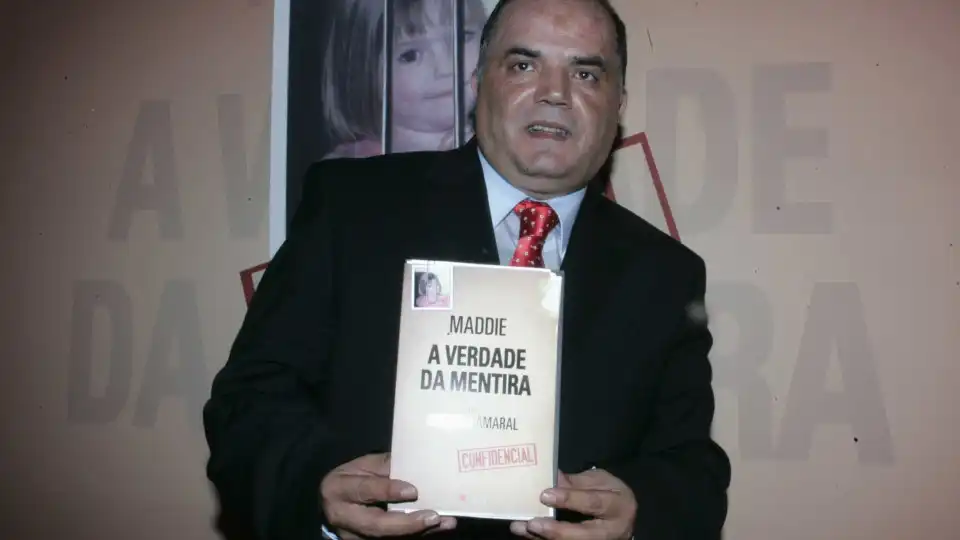
Madeleine McCann’s parents have lost a court case over claims in a bestselling book by a former detective that implicated them in their daughter’s disappearance and the book is for sale.
https://twitter.com/McCannCaseTweet/status/1864231277311746405
Gerry McCann: “There is no evidence to implicate us in her death.”
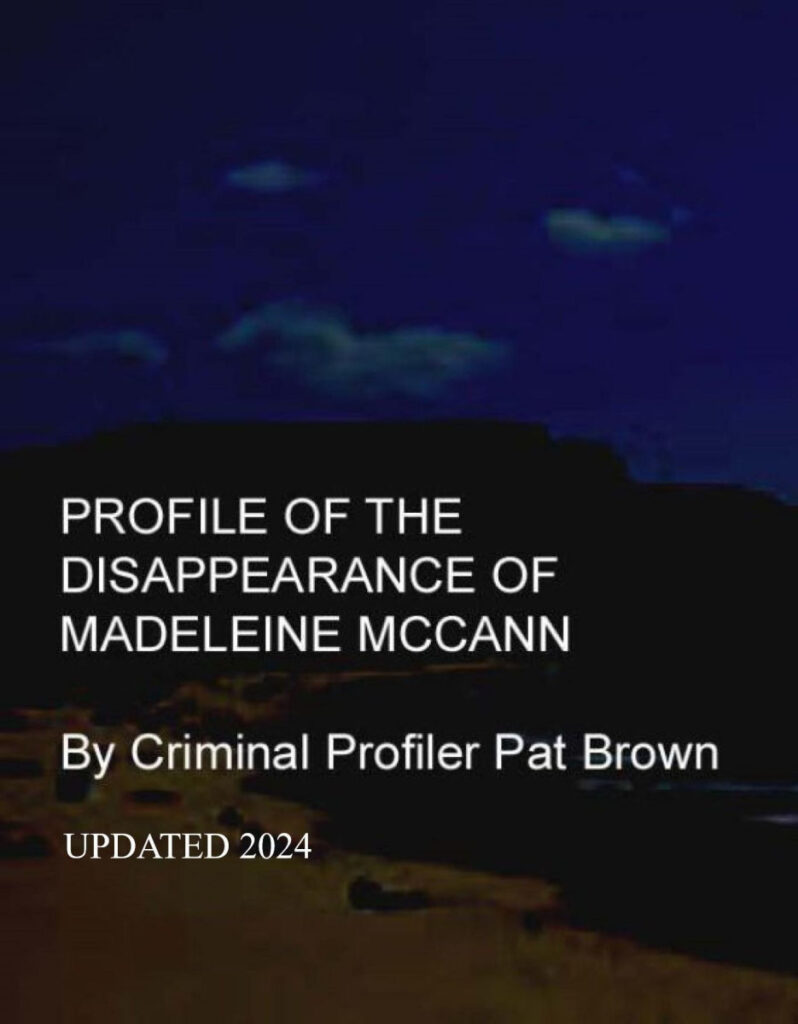
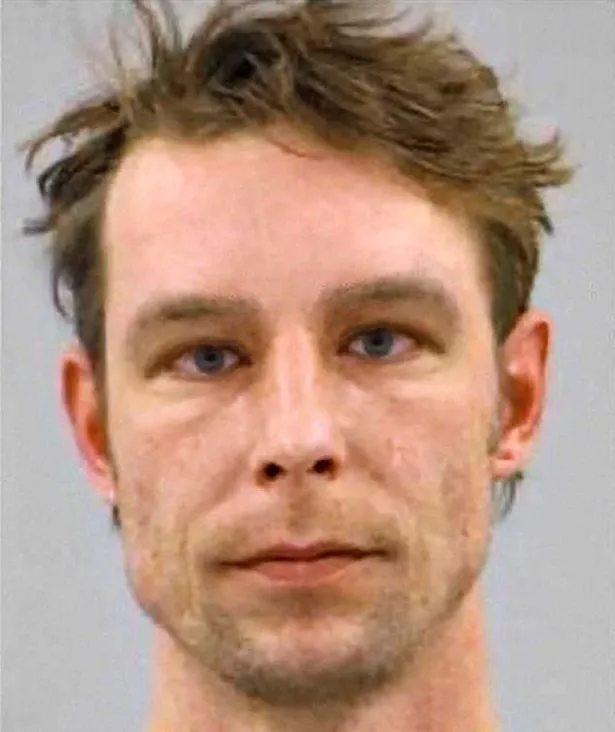
In June 2020, German prosecutors stated that they have “concrete evidence” that Christian Brückner killed McCann. However, formal charges against Brückner by the court in Brunswick have been delayed due to confusion over where his last address in Germany was and thus which German court is responsible for the trial. Brückner has previously been convicted of unrelated counts of child sexual abuse and drug trafficking, and has since 2019 served a prison sentence in Germany for raping a 72-year-old American pensioner in the Algarve region. He is scheduled for release in September 2025, and is expected to be trialed by the court in Braunschweig on 16 February 2024 over five unrelated sexual offenses committed in Portugal between 2000 and 2017. On 22 April 2022, Brückner was given arguido status by the Portuguese authorities, meaning they could extradite him to Portugal for formal questioning.
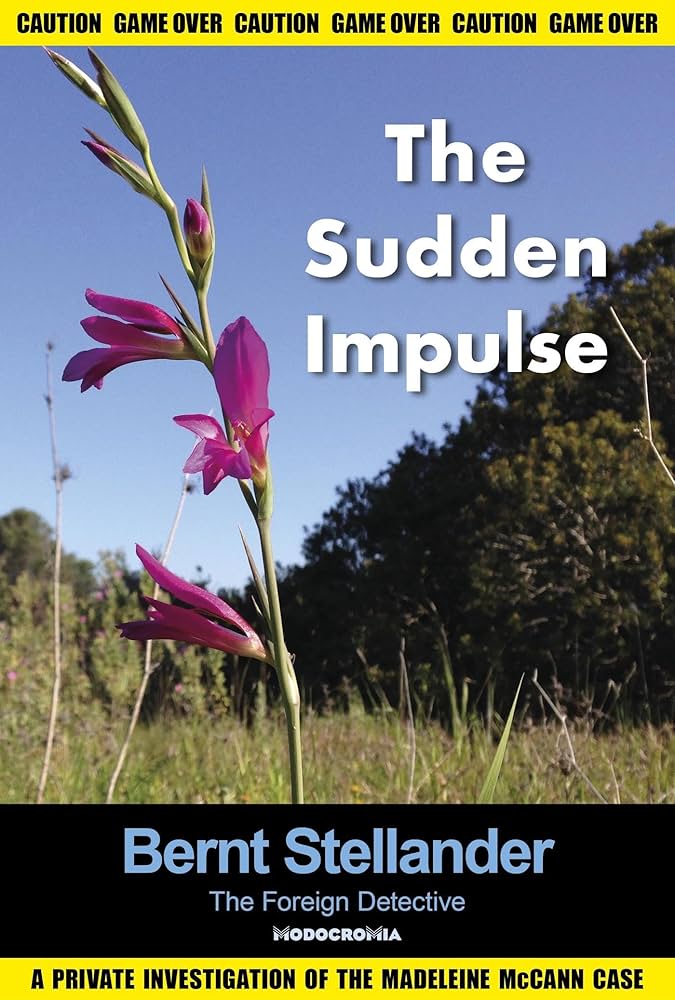
The first part which is 2/3 is the analysis part, where the statements of the involved parties are scrutinized and completely destroyed.
The lies of the faked abduction on May 3rd of 2007 will be exposed, and the evidence that Maddie died in the apartment the night before will be thoroughly laid out.
The author will also reveal where the body was temporarily hidden till it was moved to the hill East of Praia da Luz by using the car the parent rented three weeks after the alleged disappearance. the cover up of the accident inside the apartment is also discussed and revealed in this book.
The last 1/3 of the book The Foreign Detective shares his foot on the ground investigation where he found plausible areas for Maddie’s grave. He looked for symbols and put up trail cameras where interesting people showed up. He then started a cat and mouse game with the parents to trick them to the area so he could narrow down and get closer to the place he believes they buried their daughter. Truth stranger than fiction is a good description of this last part of the book.
The author’s investigation confirms the conclusion of the Portuguese police except the timeline. This is the key thing about the case, the WHEN.
The author claims to have solved the four big questions in this case.
1) When Maddie died.
2) Where she was temporarily hidden.
3) When she was moved to her final burial spot.
4) Where the area and which likely spots it could be
Christian Brückner, a suspect in the disappearance of British toddler Madeleine McCann, was acquitted of unrelated sexual abuse charges by a court in the German city of Brunswick. German judge slams prosecutors for naming him as a suspect. He could walk free in weeks.
